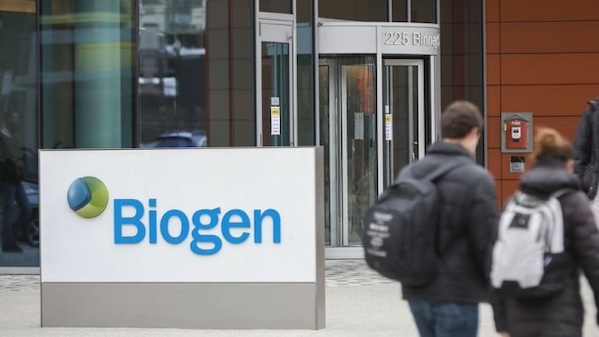Biogen abandons Aduhelm efforts, focuses on Eisai-partnered Leqembi and pipeline drugs
February 2, 2024
Source: drugdu
 514
514

More than two years after Aduhelm's controversial and ill-fated FDA accelerated approval, Biogen is discontinuing the Alzheimer's disease therapy after walking a rocky path.
Wednesday, Biogen said it's pulling all efforts from the first-of-its-kind anti-amyloid beta therapy to focus on Leqembi, its Eisai-partnered newer medicine, and its pipeline candidates. The newer drug, Leqembi, won a full FDA approval early last year, making the partners' marketing efforts on the therapy much simpler than was the case with Aduhelm.
Biogen is taking a $60 million charge and is discontinuing all development and sales of Aduhelm, the company said. It's terminating the ENVISION clinical study, which sought to confirm the benefit of the medicine as required under its 2021 accelerated approval.
The decision follows Biogen's move to launch a strategic review in early 2023 under new CEO Chris Viehbacher, the former Sanofi chief who joined the Massachusetts drugmaker in November 2022.
During that review, Biogen weighed the ENVISION study commitments and the "likely advancements in the field" by the time Aduhelm gained a potential full FDA nod. Despite searching, Biogen wasn't able to find any external partners nor financing for the medicine, the company revealed.
Going forward, Biogen will work with its partner on Leqembi and will "accelerate development of potential new treatment modalities," including pipeline meds BIIB080 and BIIB113, the company said in a release.
A "large portion" of resources freed by the Aduhelm halt will go toward Biogen's remaining Alzheimer's franchise, the company said.
“When searching for new medicines, one breakthrough can be the foundation that triggers future medicines to be developed," Viehbacher said in a statement. "Aduhelm was that groundbreaking discovery that paved the way for a new class of drugs and reinvigorated investments in the field.”
While Biogen may tout Aduhelm as a groundbreaking drug, it wasn't received as such. The med's 2021 approval was shrouded in controversy, and the company had trouble convincing payers of its benefits. The Centers for Medicare & Medicaid Services, a key player in the launch, blocked straightforward access to the drug for patients on its healthcare plans.
In 2022, Aduhelm's sales weren't significant enough for Biogen to break out of its "other product revenue" category, which totaled $13 million for the year.
Toward the end of 2022, Biogen's board brought in Viehbacher to right the course for the struggling neuroscience specialist, which had struggled to grow in recent years and weathered significant stock price declines after Aduhelm's accelerated approval. A few weeks after joining the company, Viehbacher told an audience at the 2023 J.P. Morgan Healthcare Conference that he would "restore the company to sustainable growth," in part by de-risking the company's pipeline efforts.
More recently, the company last year started a layoff round about 1,000-people strong. The cuts came amid Viehbacher's ambition to refresh the company with a "complete redesign," he said at the time.
Viehbacher also made a sizable M&A play last year. In July, Biogen agreed to purchase Texas-based Reata Pharmaceuticals and its approved Friedreich’s ataxia drug Skyclarys. The drugmaker is the "natural owner" of Skyclarys, Viehbacher said after striking the deal. Analysts believe the drug could hit $1.5 billion in sales by 2030.
https://www.fiercepharma.com/pharma/biogen-abandons-aduhelm-efforts-focuses-eisai-partnered-leqembi-and-pipeline-meds
By editorRead more on
- Gusekirumab Injection Accepted by CDE, Multiple Pipelines Advancing Simultaneously March 4, 2026
- Yifan Pharmaceutical’s teriparatide injection has been accepted by the CDE (Center for Drug Evaluation), adding a new domestic player to the osteoporosis treatment field March 4, 2026
- //news.yaozh.com/archive/47318.html PD-1 sales surge March 4, 2026
- A major breakthrough! Roche’s oral BTK inhibitor achieves its third Phase III clinical trial victory, a game-changer in the multi-billion dollar MS (manufactured pharmaceuticals) market. March 4, 2026
- GB19 Injection Approved for Clinical Trials of Cutaneous Lupus Erythematosus March 4, 2026
your submission has already been received.
OK
Subscribe
Please enter a valid Email address!
Submit
The most relevant industry news & insight will be sent to you every two weeks.



